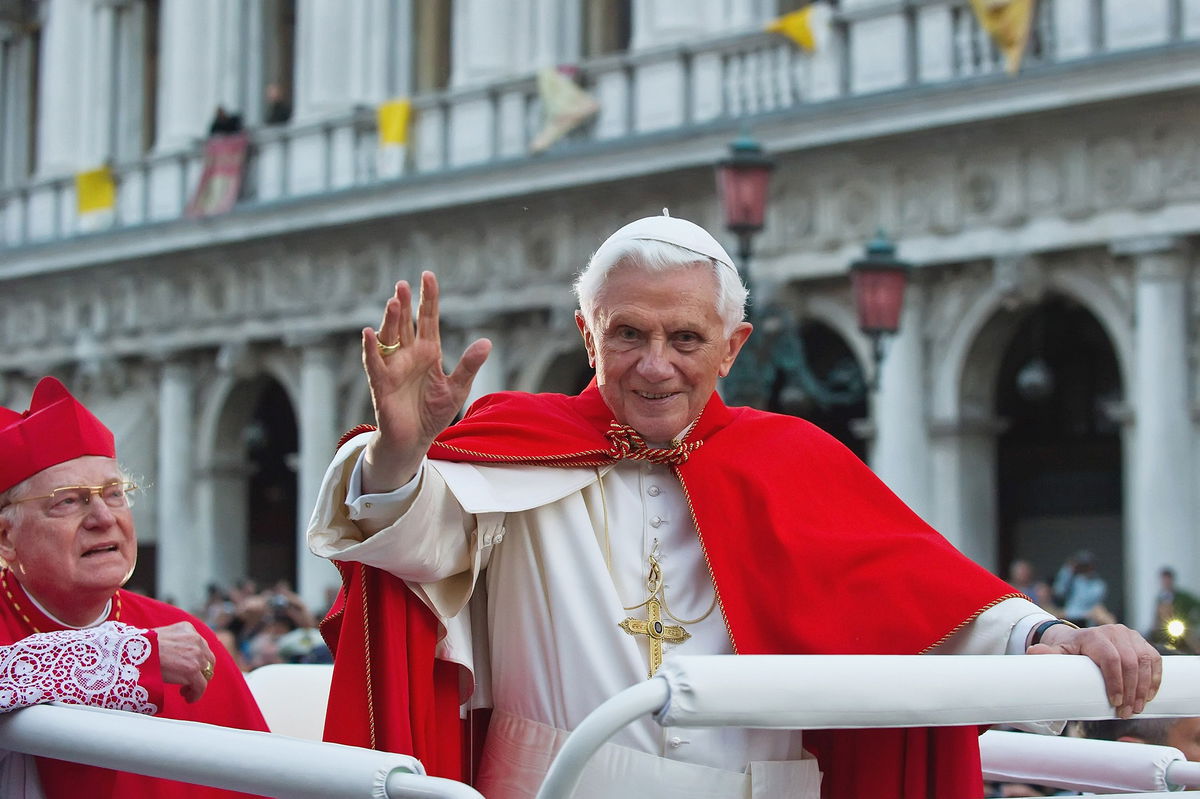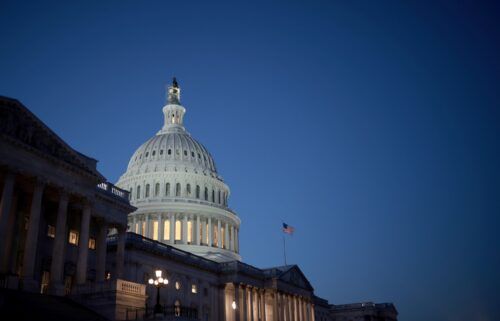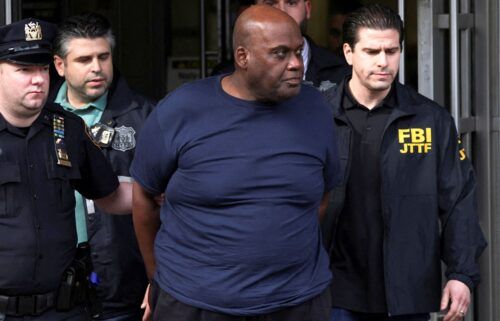Former Pope Benedict is ‘lucid and vigilant’ but his condition remains serious, Vatican says

Pope Benedict XVI is pictured in Venice
By Delia Gallagher, CNN
Pope Emeritus Benedict XVI is “lucid and vigilant” but his condition remains serious, the Vatican said Thursday in an update on the former pontiff’s health.
“He is absolutely lucid and vigilant and today while his condition remains serious, the situation at the moment is stable,” Vatican press office director Matteo Bruni said in a statement.
“Pope Francis renews his invitation to pray for him and accompany him in these difficult hours.”
Pope Francis announced Wednesday that his 95-year-old predecessor was “very sick” after a deterioration in his health.
“I want to ask you all for a special prayer for Pope Emeritus Benedict who sustains the Church in his silence. He is very sick,” Francis said during his general audience at the Vatican on Wednesday. “We ask the Lord to console and sustain him in this witness of love for the Church to the very end.”
A Vatican spokesman confirmed later Wednesday that Benedict’s health had worsened “in the last few hours” and that Francis visited Benedict at the Mater Ecclesiae monastery in Vatican City.
In 2013, Pope Benedict XVI shocked the world by making the almost unprecedented decision to resign from his position, citing his “advanced age.”
Benedict’s announcement marked the first time a pope had stepped down in nearly 600 years. The last pope to resign before his death was Gregory XII, who in 1415 quit to end a civil war within the Catholic Church in which more than one man claimed to be pope.
Benedict’s health has been in decline for some time. In 2020, the Vatican said Benedict had suffered from a “painful but not serious condition,” following reports in German media that he was ill.
Two years earlier, in a rare public letter published in the Italian newspaper Corriere della Sera, Benedict wrote that “in the slow waning of my physical forces, inwardly I am on a pilgrimage toward Home.”
Benedict has been a powerful force in the Catholic Church for decades.
Born Joseph Ratzinger in Germany in 1927, he was ordained as a priest in 1951, made a cardinal in 1977, and later served as chief theological adviser to Pope John Paul II. He was elected as the 265th pope in April 2005, following John Paul II’s death.
Benedict became pontiff at the height of the global sexual abuse scandal involving Catholic priests, as complaints of sexual abuse and related lawsuits tore at the church and threatened its moral standing around the world.
His legacy has been clouded by recent scrutiny of his time as Archbishop of Munich and Freising, between 1977 and 1982, after a Church-commissioned report into abuse by Catholic clergy there was published in January.
The report found that he had been informed of four cases of sexual abuse involving minors — including two during his time in Munich — but failed to act, and that he had attended a meeting about an abusive priest.
Benedict later pushed back against those allegations, admitting he had attended the meeting but denying he intentionally concealed his presence.
In a statement on Wednesday, the Survivors Network of those Abused by Priests (SNAP) said many people would have “mixed feelings” about the life of Benedict. “Sadly, many clergy abuse victims are not out of the woods in terms of healing from their wounds and getting the justice they deserve,” SNAP wrote.
The-CNN-Wire
™ & © 2023 Cable News Network, Inc., a Warner Bros. Discovery Company. All rights reserved.
CNN’s Rob Picheta contributed reporting.



